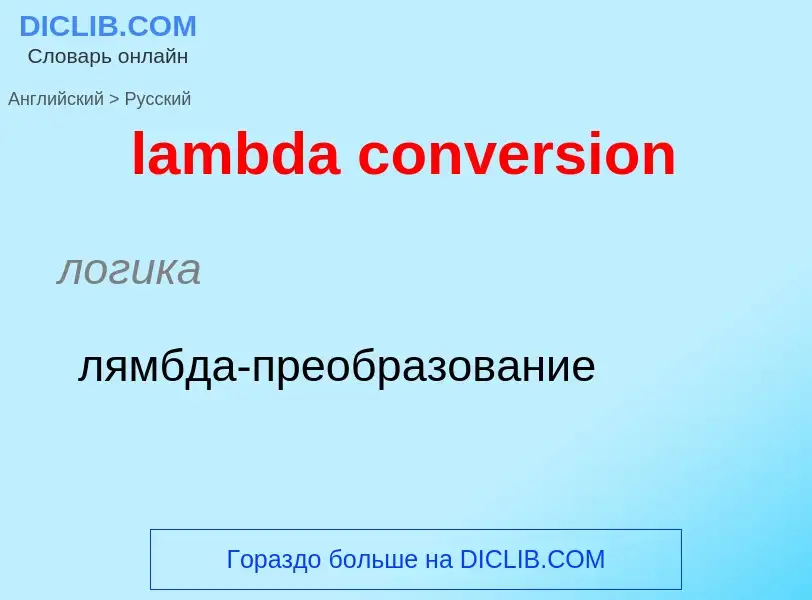Vertaling en analyse van woorden door kunstmatige intelligentie ChatGPT
Op deze pagina kunt u een gedetailleerde analyse krijgen van een woord of zin, geproduceerd met behulp van de beste kunstmatige intelligentietechnologie tot nu toe:
- hoe het woord wordt gebruikt
- gebruiksfrequentie
- het wordt vaker gebruikt in mondelinge of schriftelijke toespraken
- opties voor woordvertaling
- Gebruiksvoorbeelden (meerdere zinnen met vertaling)
- etymologie
lambda conversion - vertaling naar russisch
логика
лямбда-преобразование
математика
функциональная абстракция
абстракция функций
математика
лямбда-исчисление
Definitie
Wikipedia
Lambda lifting is a meta-process that restructures a computer program so that functions are defined independently of each other in a global scope. An individual "lift" transforms a local function into a global function. It is a two step process, consisting of;
- Eliminating free variables in the function by adding parameters.
- Moving functions from a restricted scope to broader or global scope.
The term "lambda lifting" was first introduced by Thomas Johnsson around 1982 and was historically considered as a mechanism for implementing functional programming languages. It is used in conjunction with other techniques in some modern compilers.
Lambda lifting is not the same as closure conversion. It requires all call sites to be adjusted (adding extra arguments to calls) and does not introduce a closure for the lifted lambda expression. In contrast, closure conversion does not require call sites to be adjusted but does introduce a closure for the lambda expression mapping free variables to values.
The technique may be used on individual functions, in code refactoring, to make a function usable outside the scope in which it was written. Lambda lifts may also be repeated, in order to transform the program. Repeated lifts may be used to convert a program written in lambda calculus into a set of recursive functions, without lambdas. This demonstrates the equivalence of programs written in lambda calculus and programs written as functions. However it does not demonstrate the soundness of lambda calculus for deduction, as the eta reduction used in lambda lifting is the step that introduces cardinality problems into the lambda calculus, because it removes the value from the variable, without first checking that there is only one value that satisfies the conditions on the variable (see Curry's paradox).
Lambda lifting is expensive on processing time for the compiler. An efficient implementation of lambda lifting is on processing time for the compiler.
In the untyped lambda calculus, where the basic types are functions, lifting may change the result of beta reduction of a lambda expression. The resulting functions will have the same meaning, in a mathematical sense, but are not regarded as the same function in the untyped lambda calculus. See also intensional versus extensional equality.
The reverse operation to lambda lifting is lambda dropping.
Lambda dropping may make the compilation of programs quicker for the compiler, and may also increase the efficiency of the resulting program, by reducing the number of parameters, and reducing the size of stack frames. However it makes a function harder to re-use. A dropped function is tied to its context, and can only be used in a different context if it is first lifted.

